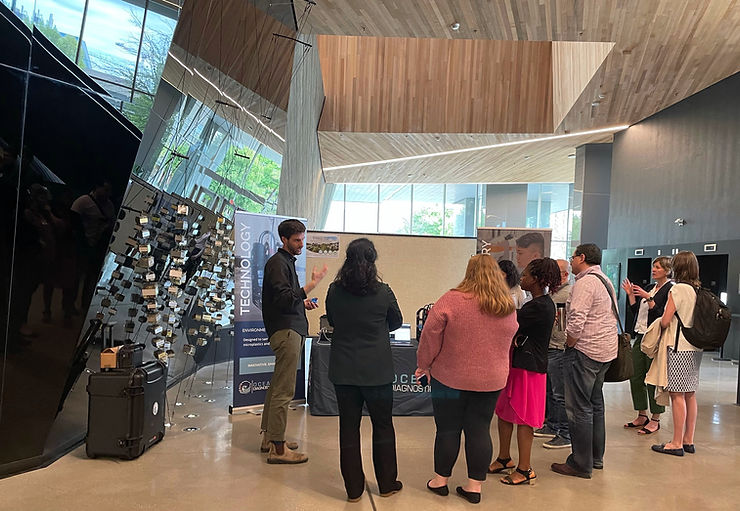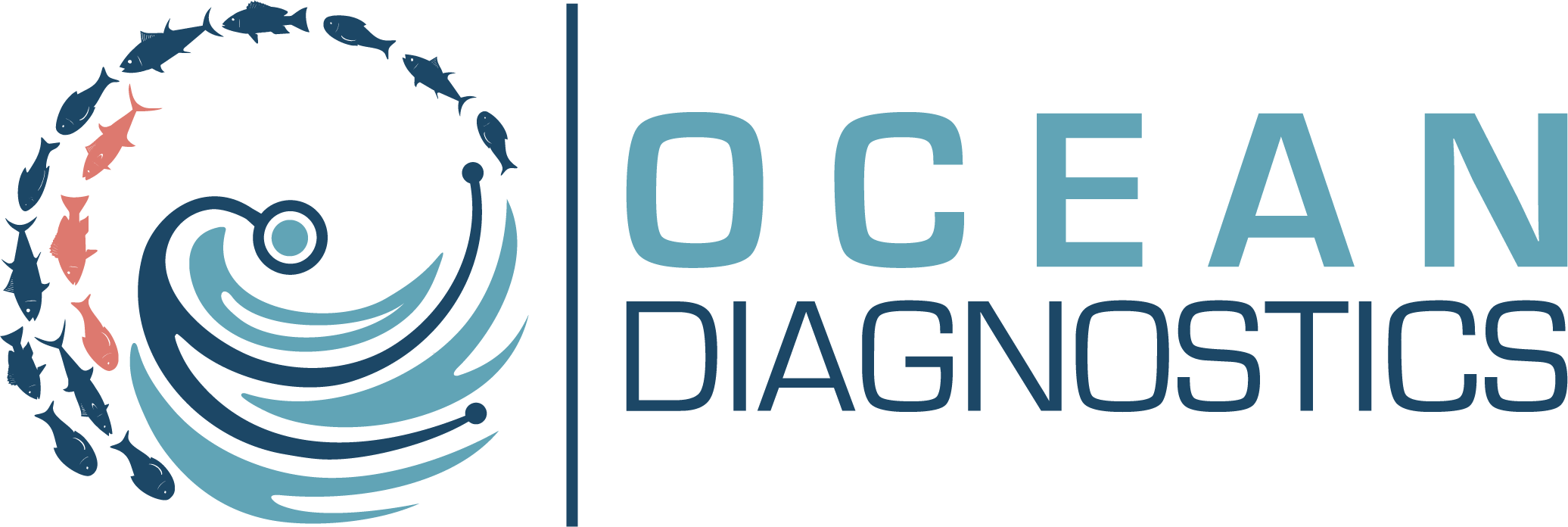Experts Gather to Minimize Impacts of Microplastic Pollution

Could eating with a plastic fork, using a toothbrush or having dentures increase the number of microplastics we swallow? These are the questions researchers at the University of British Columbia are asking about microplastics and their impact on human health.
The University of British Columbia’s (UBC) Cluster for Microplastics, Health and the Environment recently hosted a symposium to tackle the challenge of microplastic pollution. Our team was delighted to take part in the discussions and share our microplastic technology with fellow researchers. The event successfully brought together experts and partners from different fields of study to exchange knowledge and explore innovative solutions to study microplastics in the environment and minimize their impact on humans
"The symposium served as a catalyst for generating awareness, sharing knowledge and fostering connections that will undoubtedly contribute to mitigating the impact of microplastics on our health and environment." - Dr. Teresa Seifried
Co-organizer Dr. Teresa Seifried explains the event's success: "I was astounded by the level of motivation displayed by the attendees and their enthusiasm for engaging in meaningful discussions. Witnessing their dedication firsthand was truly inspiring. The symposium served as a catalyst for generating awareness, sharing knowledge and fostering connections that will undoubtedly contribute to mitigating the impact of microplastics on our health and environment."
Microplastic research is a relatively young science, and there is still a lot to learn about the associated health impacts and how best to detect and monitor microplastics in the environment. The UBC Cluster for Microplastics, Health and the Environment brings together scientists from different fields to help fill in these gaps of knowledge. The group has made significant progress in understanding microplastics and their effects. Their work can help policymakers identify solutions to microplastic pollution.
The UBC Cluster's symposium was held at the UBC campus, but it attracted researchers and affiliated partners from near and far. The event lasted for two days and was filled with insightful presentations, interactive workshops, laboratory tours and engaging conversations.
Event topics ranged from microplastics produced while wearing dentures to evidence of microplastics crossing the blood-brain barrier in mice. Presentations also highlighted the potential for microplastics to travel up the food chain and accumulate in top predators, such as killer whales. The difficulty in identifying microplastics and their unique characteristics was also addressed from different perspectives. New techniques were presented including the use of carbon isotopes, magnetic levitation, autofluorescence spectroscopy and interferometric scattering microscopy.
Ocean Diagnostics showcased cutting-edge microplastic technology, including the Ascension Sampler and Saturna Imaging System. Researchers explored the technology with interest and inspired questions.
The event was hosted in the university’s Faculty of Pharmaceutical Science building by leading experts Maite Maldonado of UBC’s Department of Earth, Ocean and Atmospheric Science and Gunilla Öberg of UBC’s Institute for Resources, Environment and Sustainability, as well as Post-Doctoral Fellow, Dr. Teresa Seifried, master’s student Josh Travers and master’s student Joud Jelassi.
Presentations were impressive and revealed the innovative approaches curious UBC researchers are taking to address microplastic pollution. The symposium provided a valuable platform for knowledge exchange and collaboration among experts from various fields.
The cluster is paving the way for creative and more effective solutions to address microplastic pollution, and it was a pleasure to be involved.
For more information on microplastic science, follow us on Twitter, LinkedIn, Instagram and Facebook.
Contact us to get on our mailing list.
Ocean Diagnostics Inc. (ODI) is a Victoria, B.C.-based environmental impact company that diagnoses and protects our planet from the threats of plastic pollution and biodiversity loss. Through innovative technology, cutting-edge laboratory capabilities and collaborative partnerships, ODI enables scientists and the public to collect the data needed to influence local and global solutions.
